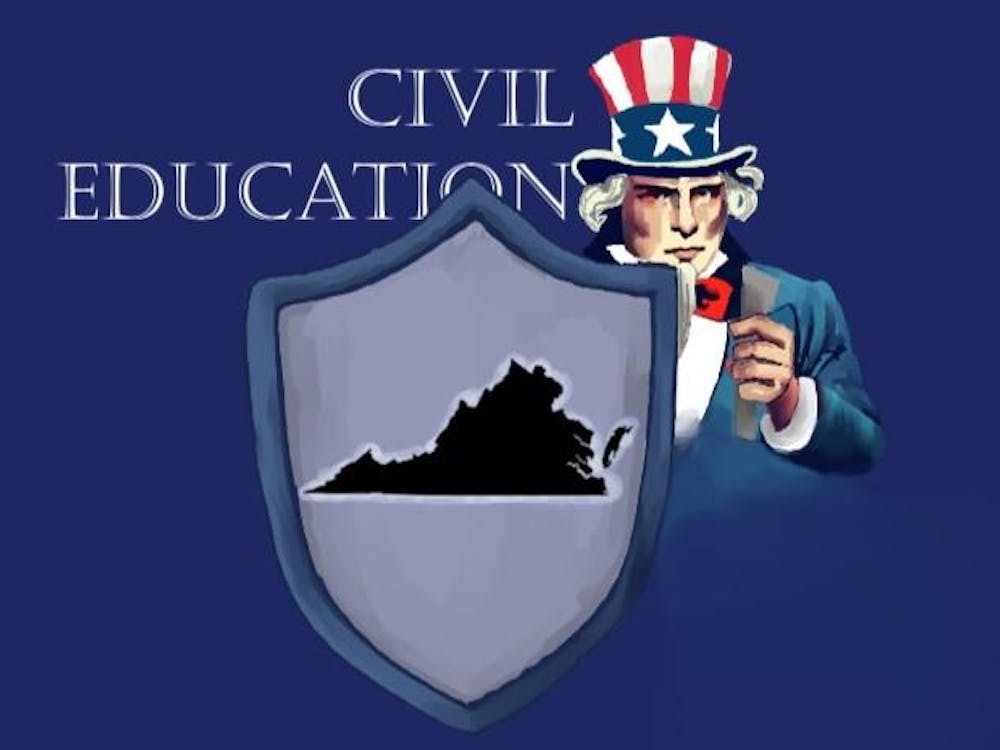I have been skeptical of the University’s honor system since my first day on Grounds. Before coming to the University, I attended a residential boarding school with 200 other students from around the world. We went to class together, ate together, lived together and effectively created our own community in which trust was a key component. Occasionally, my classmates made mistakes and that trust was compromised, but there was not a one-size-fits-all punitive solution like the single sanction to address these mistakes. Consequences were real in our community when that trust was broken, but so were opportunities to be forgiven.
In the fall, I attended many of the Honor Committee’s roundtable discussions and made my opinions known about the University’s honor system. I perceived Committee representatives and support officers to be power-seeking, and was openly critical of the Committee for perpetuating a system and a community incapable of forgiveness. Upon learning about the Restore the Ideal Act, I was immediately in favor of the proposed policy of informed retraction. Although maintaining the single sanction, the proposal provides a necessary opportunity for contrite students to take responsibility for their actions and, ultimately, to be welcomed back into the community of trust.
But perhaps more importantly, I am also in favor of the proposed jury reform. Though I never could have imagined holding this position a year ago, my firsthand observation of the honor system’s processes this fall reversed my opinion on the matter. Recent opposition to jury reform has come from a conceptual understanding of what juries should be, while support from those involved with the Committee has focused on ambiguous situations constrained by the rules of confidentiality. As someone who attended the public trial earlier this year and realized very quickly the real need for jury reform, I am writing to offer my support.
One of the first things I realized about an honor trial was that the “jury” was not really a jury at all. Its members were responsible for actively leading the hearing. They asked the initial questions, posed follow-up questions, and called back witnesses after listening to all of the testimony. The counsels were not adversarial, but rather asked open-ended questions that they had shared with the other side beforehand. This was nothing like the conventional trial I’d expected. Instead, it was a hearing to pursue the truth, and it operated much differently than a criminal justice proceeding.
The jury and its inability to provide the most thoughtful and thorough hearing startled me. Two students had their academic careers at the University on the line, and the stakes could not have been higher. Members of the jury repeatedly asked random, often-disconnected questions that came nowhere near the heart of the matter, and the trial essentially devolved into 12 separate lines of inquiry instead of one coherent exercise. While I’m sure the jurors were well-intentioned, the hearing was not nearly as exhaustive as I would have hoped. Jurors appeared visibly uncomfortable to be there, and some did not appear actively engaged in the probe. As a fellow student, I was disappointed that the accused students did not have the opportunity to go in front of panel better-equipped to really sift through the issues and with the prior knowledge and seriousness to focus on the issues of importance.
I personally disagreed with the verdict reached by that jury. I also disagree with the guilty verdict rendered by a random student jury in 2009 for Jason Smith in a one-credit pass/fail course. In that open trial, a juror had to be dismissed for reading a book during the proceedings. To believe that random student juries are reaching decisions that we all agree with is simply wrong. Allowing inconsistent, incompetent random student juries to remain does a great disservice to every member of our community of trust. Random juries may find students guilty and not guilty, but it would be naïve to believe that they find or even pursue the truth with any degree of consistency. In contrast, an experienced all-Committee jury actually affords much more protection to students. They could provide them the rigorous and exhaustive hearing that they deserve.
This should not be treated as a conceptual exercise. Our fellow students are going through this system, and for the first time in a long time we have the chance to make the honor system more forgiving to those who wish to admit their mistakes, and more fair for the others at trial. After finally witnessing an honor trial in person, I am obligated to encourage my fellow students to vote yes on the proposed changes within the Restore the Ideal Act. Let’s make this a community of trust we can all be proud to be a part of.
Luke Brennan is a fourth-year student in the Commerce School.






